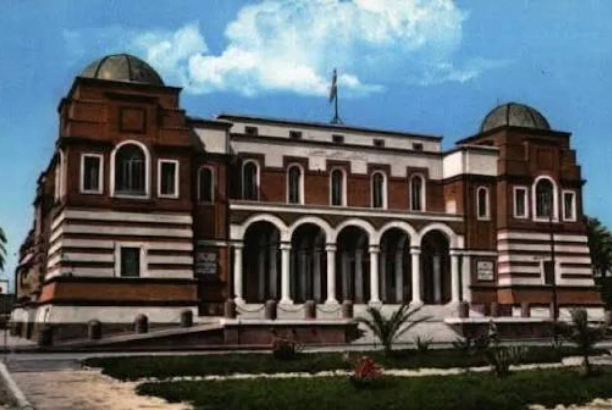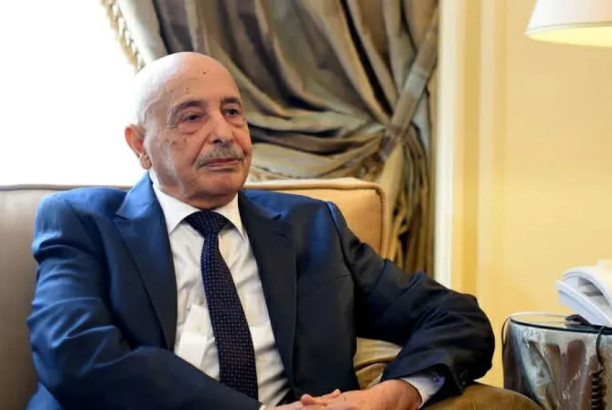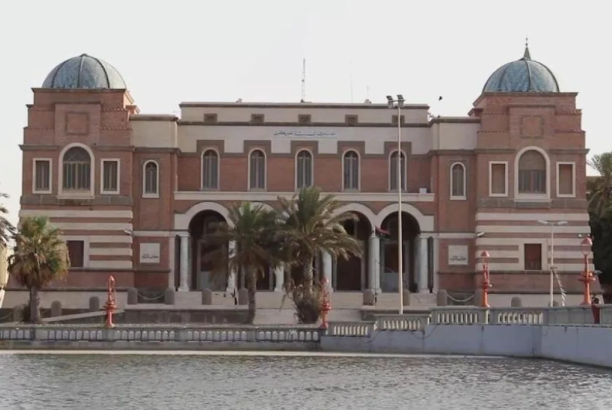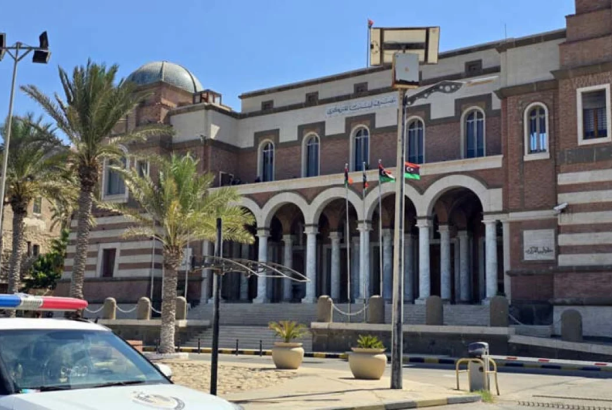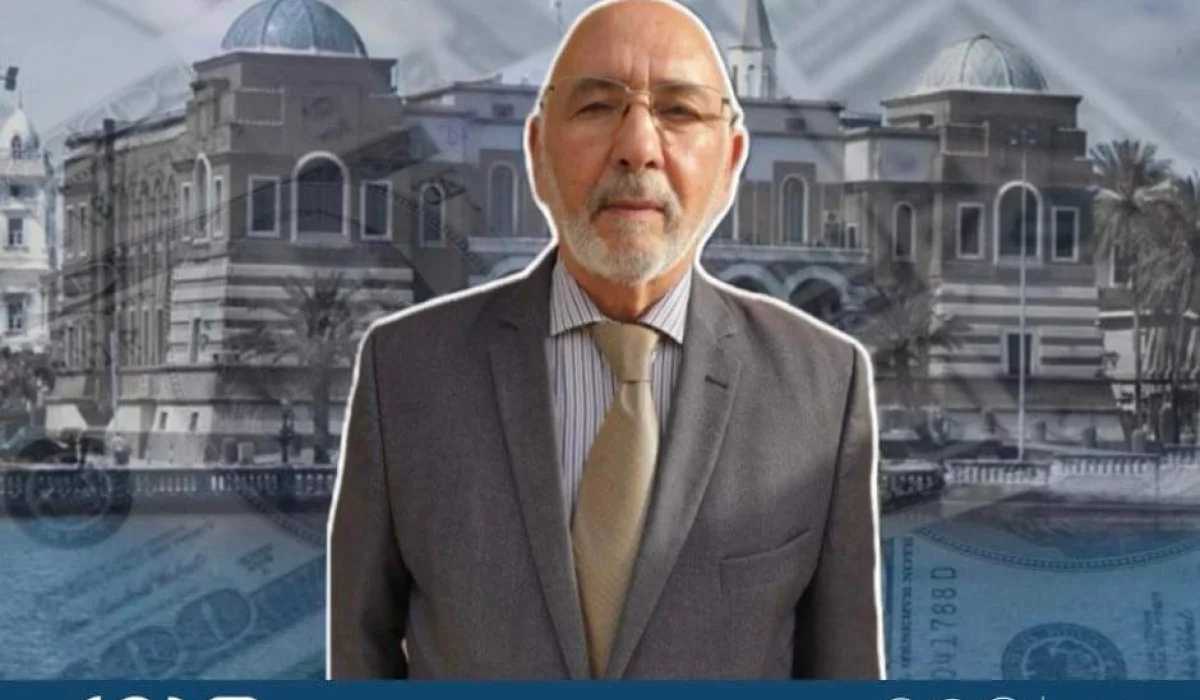
| News
Exclusive: Zermouh Comments on the Central Bank’s Claim of Eliminating Public Debt in the Latest Report
Professor of Economics at the Libyan Academy, Dr. Omar Zermouh, commented to Sada Economic News regarding the Central Bank of Libya’s August 2024 report on public debt. He was asked, “What is the value of public debt, and is it truly zero within less than a month? Has the Central Bank forgiven the accumulated debts of the government?” He responded:
- The question about the public debt that the Central Bank claims to have eliminated, bringing it to zero, should be answered by the Central Bank itself if it wishes to be clear and transparent. With the current lack of clarity, we will have to estimate the size of the public debt.
- Referring to the Central Bank’s economic bulletin for Q1 2024, specifically Table 5, it is evident that the public debt amounted to 84.1 billion dinars. However, it is unclear if this includes the public debt considered by the government in the east of the country, which was estimated by the Audit Bureau in its 2021 report at 61 billion dinars. Thus, the total public debt could be 145 billion dinars. With the emergence of a second government in the east, the 61 billion dinars figure may change. There is also a statement from the Minister of Economy indicating that the public debt has reached 200 billion dinars.
- Despite the confusion in estimating public debt due to the lack of transparency, especially from the eastern government, it is important to note: (a) The public debt ceiling each year is determined by the budget law issued by the legislative authority or the financial arrangements specified in the political agreement, and any debt resulting from actions contrary to this should not be recognized. (b) The Central Bank’s report states: “The Central Bank of Libya confirms that the public debt recorded in its books has been extinguished and has become zero, and the necessary accounting entries are being made in this regard.” This means the Central Bank refers to the public debt recorded in its books and does not include any unrecorded debt. It is clear from the previous point that the recorded debt in the Central Bank’s books was 84 billion dinars as of March 31, 2024. However, it is still unclear if the Central Bank made any additional entries regarding public debt from April 1, 2014, to August 31, 2024, especially after the previous governor accepted Russian-printed currency. This should have been clarified in the report with full transparency.
He added: “The second point is that the authority to extinguish public debt does not belong to the governor or the board of directors. Their role is to manage the Central Bank’s funds, not to decide how to use or forgive them without considering the actual owner of these funds, which is the people represented by the legislative authority. Although there is an issue with the legitimacy of the current House of Representatives, addressing this may require consultation between the House of Representatives, the State Council, and the Presidential Council. The point is to highlight that extinguishing public debt is not within the purview of the Central Bank’s Board of Directors. The creation of public debt should be based on budget laws or similar financial arrangements, and extinguishing it should follow the same procedure. The existence of public debt implies that the debtor is the public treasury and the creditor is the Central Bank, with ownership rights held by the people through their legislative authority. Therefore, the repayment of public debt should be decided by the legislative authority, which owns the capital, reserves, and profits, and not by any institution acting without explicit authorization from the owner.”
Zermouh continued: “If we examine the phrasing in the Central Bank’s August report about public debt, we may conclude that the wording does not truly reflect the extinguishment of public debt. The process of extinguishing public debt should follow these steps: (a) Issuing a law by the legislative authority for partial or complete extinguishment of debt, as in Law No. 15 of 1986, specifying the funding source. (b) The Central Bank should implement the debt law and make the necessary accounting entries, preparing and approving journal entries with the required documentation. (c) Recording these entries in the Central Bank’s ledgers, either manually or electronically, to achieve the complete or partial extinguishment of debt according to the law. Based on this, the statement that “it has been extinguished and is now zero, and the necessary accounting entries are being made” implies that the Central Bank has not yet made the accounting entries. If the Central Bank prepares a balance sheet at the end of August, the public debt will still appear unchanged, and there is no law to support this action.”
Zermouh further noted: “The third point is whether it is possible to extinguish public debt if the Board of Directors approaches the legislative authority with a proposal to extinguish it, specifying the value and source of funding. After the exchange rate change on December 16, 2020, the Central Bank had to re-evaluate its assets and liabilities, resulting in a significant “revaluation difference” due to the 70% devaluation of the dinar. This difference appears on the liabilities side of the Central Bank’s balance sheet and is considered part of the ownership rights held by the people through their legislative authority. This difference might be sufficient to extinguish the public debt recorded in the Central Bank’s books, whether 84 or 145 billion dinars as previously estimated. Therefore, it is possible to extinguish public debt and reduce it to zero, but the process still lacks a legislative aspect. Improvisation in such matters could have severe consequences, as the revaluation difference is important for strengthening the Central Bank’s financial position and might be needed in the future to enhance the dinar’s value after the decline resulting from the December 16, 2020 decision.”
He also pointed out that the public debt could potentially be extinguished within a month if the necessary law is issued, allowing for the immediate execution and completion of accounting entries.
In conclusion, he said: “The final question is whether the Central Bank’s statement about extinguishing public debt means that the Central Bank has forgiven the accumulated debts of the government. The answer is that the Central Bank’s Board of Directors does not have this authority; the legislative authority does. Ideally, the legislative authority approves the budget, authorizes the government to spend within a specified limit for a fiscal year, and authorizes borrowing from the Central Bank or others as needed. Thus, the legislative authority decides on the repayment of public debt from state revenues or from the revaluation difference resulting from the devaluation of the dinar, with the mentioned reservation. Therefore, extinguishing public debt is not a gift or free concession to the government; it is a decision of the legislative authority that initially created the debt. This is the ideal scenario, but realistically, the House of Representatives (and the State Council) have been neglecting budget matters and oversight since 2015. Such recent moves by the Presidential Council, despite the legal complexities, may have stirred things up and awakened the need for a unified budget with clear objectives and effective economic policies, implemented according to the financial system law and its executive regulations.”


